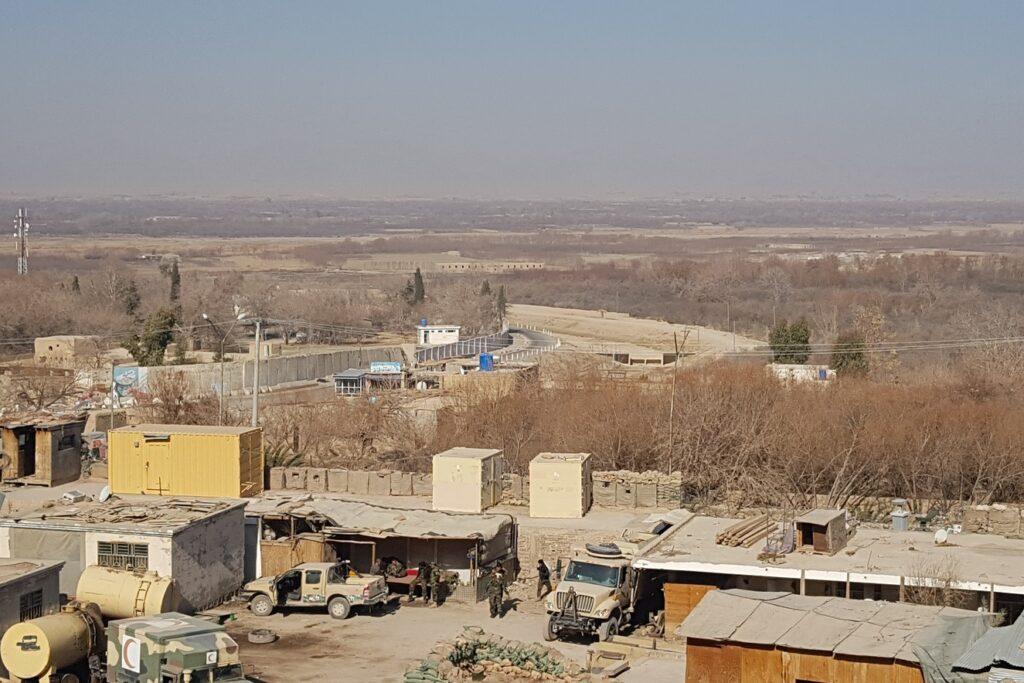KANDAHAR CITY (Pajhwok): Residents of war-torn districts in southern Kandahar province say their orchards and crops will dry up if the fighting continues and they do not return to their homes.
Kandahar’s Arghandab, Zherai and Panjwai districts have pomegranate, grape and other orchards but heavy fighting over the past few months displaced most of residents.
They say the war has already caused severe damage to horticulture and agriculture, destroyed many gardens and homes, and displaced thousands of families, but if the situation continues, it will turn into a great tragedy.
Mirajan, a resident of Manara village in Arghandab district, told Pajhwok Afghan News that fighting broke out in the district about four months ago when it was time to harvest pomegranates.
He said residents suffered a lot and were forced to leave their homes and gardens and save their lives.
He said now that winter was over, their gardens and fields needed to be watered in the spring. “But the fighting is still going on and as a result the villages are empty, the gardens are razed by the warring parties, roadside bombs have been planted.”
“People are calling for a ceasefire so they can return to their homes and return to their gardens and fields,” he said.
He said thousands of displaced families from Arghandab and other districts were living in dire conditions and counting down the days to the end of the war.
Mullah Baran, a resident of Panjwai district, told Pajhwok Afghan News that thousands of families had been displaced by the ongoing fighting in the district.
He added that people’s lives in districts depended on horticulture, livestock and agriculture.
Mullah Baran also said that the warring parties should stop fighting and call a ceasefire in view of these and other problems of people.
Engineer Mohammad Sharif, Arghandab’s district chief, said the recent fighting had displaced families and affected agriculture.
He told Pajhwok Afghan News that houses, gardens and public facilities had been severely damaged after the insurgents started fighting in the district.
He added that the insurgents had planted landmines on all roads in the district, making it difficult for people to commute.
The district chief said the fighting had destroyed people’s homes and gardens and that militants were using them as battlefields, even tearing down houses and perforating rooms.
Pomegranate and grape orchards cover 90 percent of the district’s land and wheat, corn, maize and vegetables are grown on the remaining 10 percent.
He says people are now waiting for the district to be cleared of insurgents before spring and for them to return to their homes.
In response to the plight of residents of Kandahar’s war-torn districts, the Kandahar Civil Ulema Association has issued a letter calling for an end to the fighting and agreeing on a ceasefire.
They also expressed concern over the damage caused to people by the current situation, saying that on the one hand there is drought and on the other there is fighting in the mentioned districts. “If the situation continues like this, people’s crops and orchards are in danger of drying up.”
Meanwhile, Presidential Adviser on Peace Affairs Mohammad Masood Akhundzada, accompanied by tribal elders from Arghandab, Zherai and Panjwai districts, met with the Kandahar governor and shared their concerns with him. .
He told Pajhwok Afghan News that the ongoing fighting in these important agricultural districts of Kandahar had caused heavy economic losses to the people and residents were demanding an end to the fighting so that they could return to their homes and continue their lives.
He said he had conveyed the problems of the people to the officials of the provincial and central administrations and asked them to take immediate action.
Taliban spokesman Qari Yousaf Ahmadi said in response to the people’s demands that they had not yet agreed to a ceasefire.
He told Pajhwok Afghan News that government forces had started fighting and bombing in the districts, threatening the lives of civilians and creating problems. According to him, their side does not hurt the people.
But Kandahar Governor Rohullah Khanzada said a ceasefire and providing people with a comfortable life were a priority for the government and the provincial administration.
He added that the national security and defense forces are always sacrificing for the well-being of their people and protecting their lives and property.
He informed that clearing operations in these districts are going on successfully and soon the residents of these districts will return to their homes.
But he noted that the only problem was landmines on public and secondary roads, which security forces were busy defusing, and that people would be allowed to return to their areas once the threat was over.
ma







GET IN TOUCH
NEWSLETTER
SUGGEST A STORY
PAJHWOK MOBILE APP